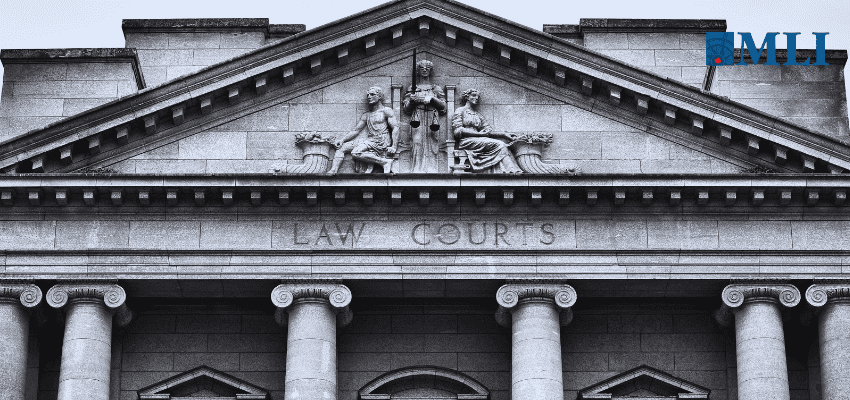This article originally appeared in the Hub.
By Troy Riddell, August 29, 2024
Recently, Ontario Premier Doug Ford announced that statistics will be kept about how judges and justices of the peace (JPs) decide bail cases. According to the premier, judges are “always independent, but who holds them accountable?” Critics countered that the plan threatens judicial independence and the rule of law, and that appeals and a separate complaints process (through the Ontario Judicial Council) are appropriate accountability mechanisms.
How should we navigate this tension between accountability and independence and improve bail decision-making? Below, I argue for various measures, including the public release of better aggregate data on bail, while providing JPs and judges (and their chief administrators) individual statistics about bail decision-making (and other performance metrics).
Currently, a gap exists in the feedback given to judges. Appeals are relatively rare, given the volume of decisions made by JPs and trial judges. And, complaints only proceed through the judicial council when judges are credibly alleged to have acted unethically or engaged in fairly egregious behaviour. Missing is the regular and systematic feedback that many of us receive in our work. Feedback around communication, efficiency, knowledge, effectiveness, and the treatment of others.
Compared to other occupations, however, things get tricky when proposing to assess JPs and judges on the substantive outcome of their decisions and in making individual feedback public. On the one hand, it could provide enhanced accountability and perhaps influence decision-making such that bail decisions are more in line with public opinion—and public trust is crucial for independent courts.
On the other hand, I have concerns about JPs and judges being influenced by the pressure of public opinion—and possibly by more targeted intimidation. This could undermine the protection that courts afford individual liberty, including the presumption of innocence. The problem would be exacerbated if only superficial statistics were provided (and without qualitative context or examples) so that the public lacks appreciation of some of the complexity and nuances that decision-makers face in criminal justice.
My preference would be to further reform bail laws such that the rules that guide the bail process make it less likely that repeat offenders, especially violent ones, are granted bail. The Criminal Code should also increase the obligations of judges and JPs to justify their release decisions for repeat and violent offenders. If we want JPs and judges to decide cases in a particular way, they should be guided by law, as passed by democratically elected legislators who are directly accountable to the public.
But the Criminal Code is within the federal jurisdiction. What should provinces do now? First, collect better statistics in criminal justice, including how many individuals are denied bail, what conditions are placed on bail releases, how many individuals on bail commit crimes (and what kind of crimes), and how many individuals denied bail are acquitted or have charges stayed. Appropriate contextual statistics, such as criminal history and demographic characteristics of the accused, need to be collected as well.
Second, all JPs and judges, regardless of court or area of the law, should receive periodic feedback (based on surveys and court statistics) about their communication skills, management of the court (and staff), treatment of parties before the court, fairness, efficiency, and knowledge of the law. Aggregate results should be released to the public, and individual results given to the judge and their chief administrative judge. Similarly, in the specific context of bail decisions, statistical data (as described above) should be released to the public.
Providing the public with some examples of bail cases could help highlight the difficult trade-offs often involved in making decisions. Individual rates and outcomes (including both offending while on bail and stays/acquittals after denial of bail) should be provided to the judge and their chief administrator but not be made publicly available. JPs and judges would understand the trends around bail and where their decision-making fits within this broader pattern.
Third, to help JPs and judges make the best decisions possible, better information systems need to be in place to ensure that JPs and judges have complete information about the accused when making decisions. Fourth, Crowns should be encouraged (and funded) to appeal bail decisions that threaten public safety.
Finally, it would be okay during the appointment process for governments to consider how a prospective JP or judge might be inclined to lean in criminal law matters. An interest in the ideology of a candidate should not dovetail with partisanship or patronage, nor should it overwhelm other important considerations, such as diversity (both demographically and in terms of professional background and legal training); however, it is a legitimate consideration in the overall assessment of candidates.
Troy Riddell is chair of the Department of Political Science at the University of Guelph. He has teaching and research interests in law and politics and criminal justice policy and has written for the Macdonald-Laurier Institute.






